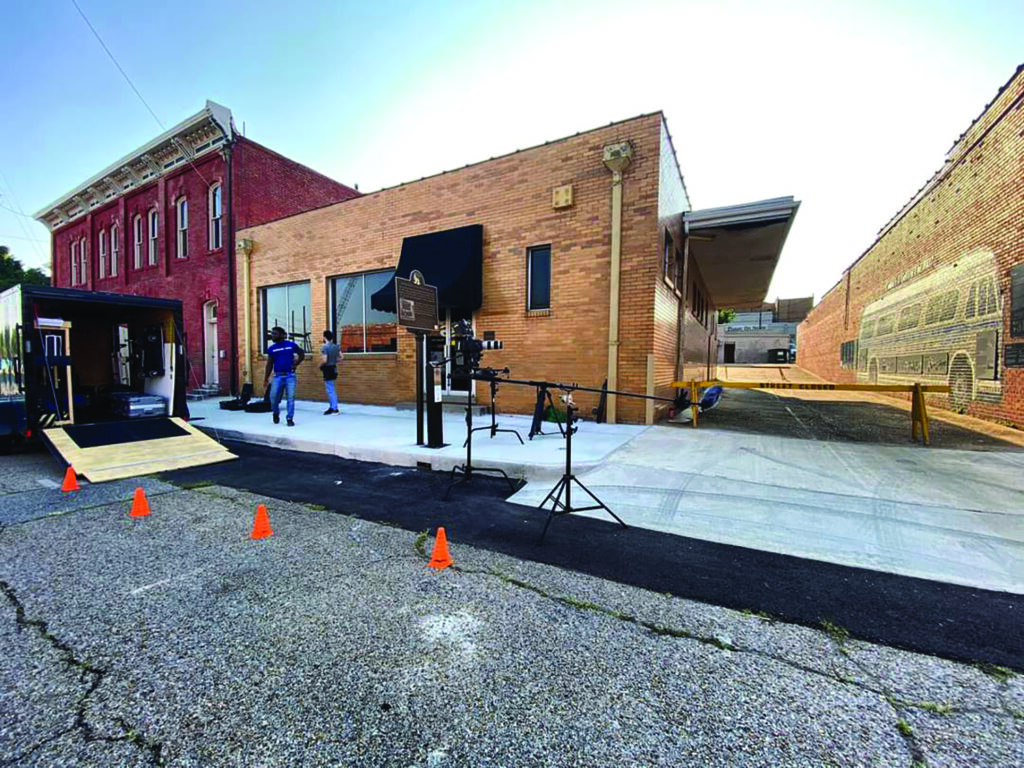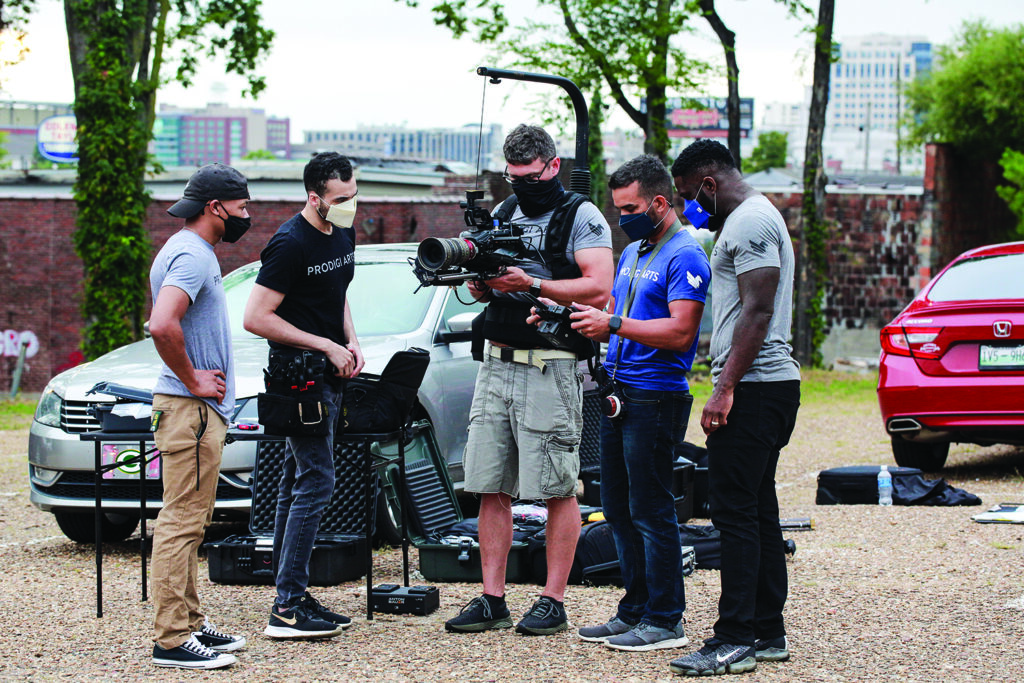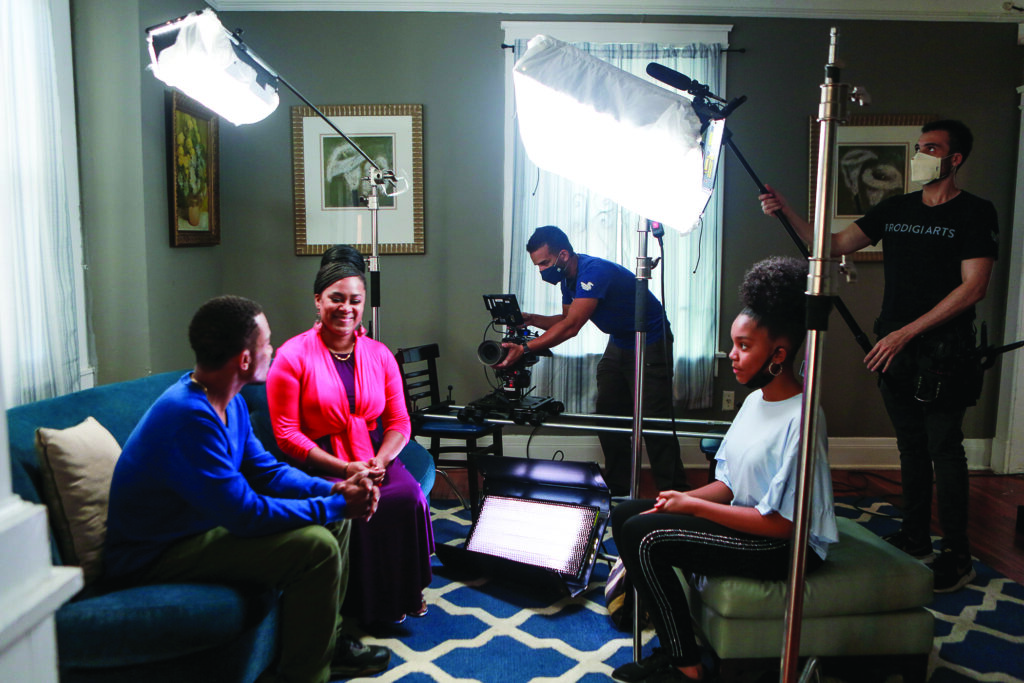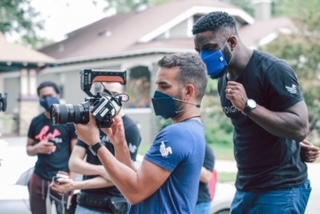by Tricia Dewey | photos by Amelia Moore
This May, Chris O’Conner’s television, film, and animation production company, Prodigi Arts, together with PBS, Alabama Public Television, and Longleaf Studios (Jacksonville State University’s production company) released The Fire in Anniston – A Freedom Riders’ Story, a documentary that tells a particularly harrowing piece of the Freedom Riders’ story. Sixty years ago on May 14, 1961, a Greyhound bus carrying Freedom Riders, Black and White passengers riding buses to integrate interstate travel by bus, arrived in Anniston, Ala., to find the bus station locked. What ensued was one of the most terrifying stories of the Freedom Riders’ 1961 campaign. The Freedom Riders’ bus was attacked by a group led by a KKK leader and basically abandoned to the mob by local police. The bus was eventually firebombed by the mob, who attempted to trap the passengers inside.
Prodigi Arts was tasked by PBS, Alabama Public Television, and Longleaf Studios to tell this story from the Anniston perspective. The Greyhound bus station where the events unfolded was designated a National Monument in 2017. Prodigi interviewed survivors, some of the children of KKK members, and other people in the city.
This latest documentary for Prodigi Arts is a culmination of O’Conner’s vision that began while he was still a student at MTSU. In 2005 O’Conner founded Prodigi Arts, while studying visual effects and animation there. O’Conner was a Midtown Memphis kid who attended Snowden Elementary and Central High School. MTSU was the only school that was nearby that offered visual effects and animation as a major.
O’Conner has a passion for art. He is an artist himself, a painter and sculptor, and as a child he was a professional performer until he went to college. Music was his passion. At MTSU he decided to launch into film and filmmaking. He always wanted to know how movies were made, how the visual effects were happening. “Visual effects really captivated me. It was an extension of my art so I was really intrigued by that and I wanted to get into the film industry. I always thought I’d get a job at Marvel or Pixar. But the entrepreneur in me–my father’s an entrepreneur–so i grew up with quite a bit of business savvy, that kind of propelled me to start my own business.”
When he started the production company, the whole goal was to bring his knowledge of visual effects. O’Conner explains, “Instead of taking that knowledge to California or New York and moving there, he wanted to bring power and skill sets back to Memphis.” O’Conner felt that these production skills were not being offered to companies in Memphis. “There are a lot of Fortune 500 companies here who were outsourcing work to California, New York, and Atlanta. We quickly gained rapport with lots of companies and started getting great work and opportunities with the larger companies, FedEx and AutoZone, working with other agencies in Memphis, Red Rover Marketing, and even Ray Rico’s company. And the rest is history. We took off from there. And now the company has grown quite a bit.” Memphis gave O’Conner a kind of business credibility that he has expanded into offices in both Los Angeles and Memphis.
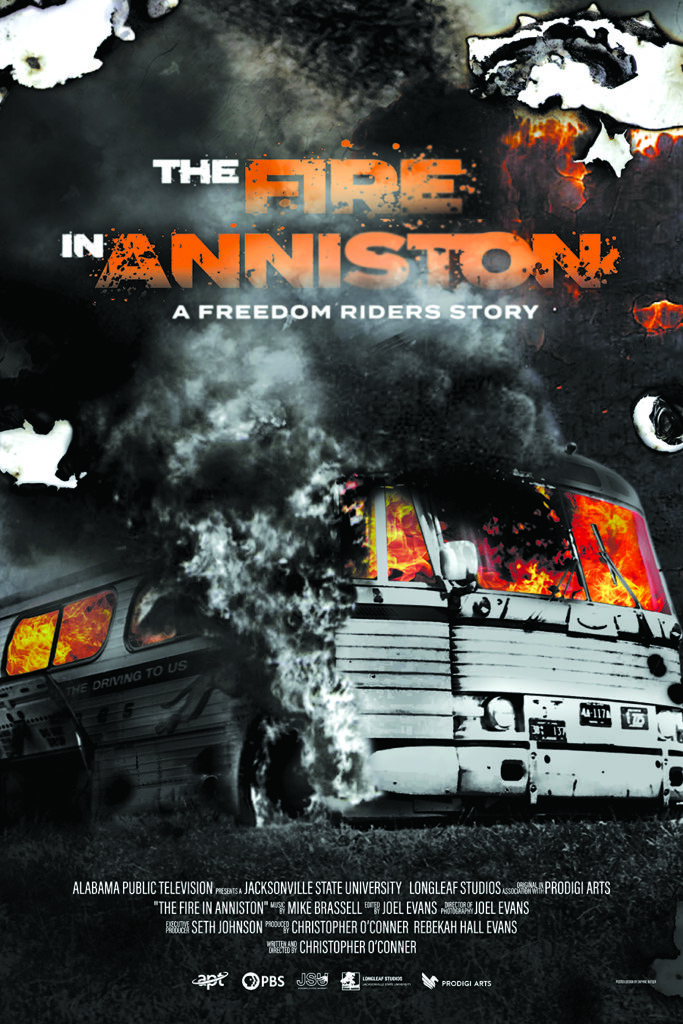
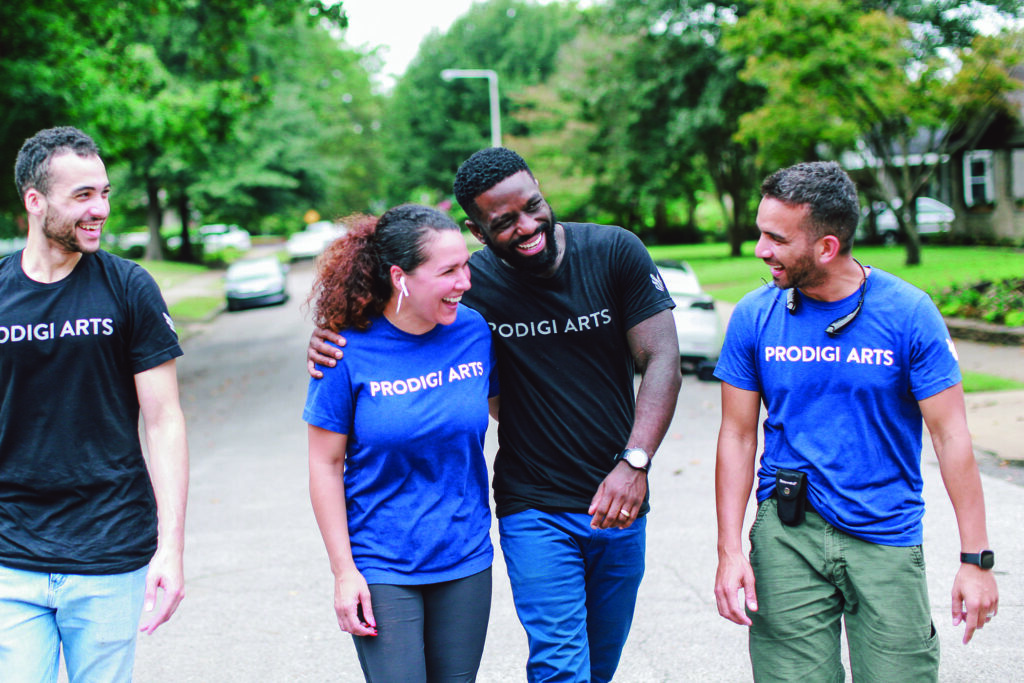
a group of 1960s Freedom Riders. Below, the Prodigi Arts team on set.
Prodigi got its start in corporate and commercial video production but always made entertainment its ultimate goal. O’Conner continues, “We love telling stories. Even when we were filming corporate videos with executives, we produced the videos with a documentary- style treatment, taking viewers behind the scenes of multi- million-dollar and even multi-billion-dollar organizations. We’ve filmed over 100 companies with this documentary-style treatment. Documentary filmmaking was a natural progression.”
They are now working on several other documentaries, including four documentaries in total with the PBS group. The vision and the dream include expanding to produce their own content. But O’Conner says “The Fire In Anniston has definitely been our most meaningful and most important project to date, especially due to all of the civil unrest going on in the country. We were contracted to do the project just before the murder of Ahmaud Arbery. Shortly after, many other officer- related killings involving African Americans would take place, including the killing of George Floyd, leading to riots, protests, and civil unrest.” He feels that current unrest heightened the importance of telling this story of the unity among races in the fight for civil rights. “This was especially challenging for me, being African American, as the producer, writer, and director of the film. For me, the timing of this project seemed ordained by God. In terms of us [Prodigi Arts] getting this project, I struggled to understand why me and why now. At times it felt like a blessing and other times it felt like a burden. Though it was tough at times, we completed the project and I must say that I feel honored and blessed that my team and I were chosen to tell this story.”
One thing that surprised him in the documentary was that many of the White and Jewish Freedom Riders who risked their lives fighting alongside the Black Freedom Riders were wealthy. They lived good lives and didn’t have to get involved, but they just couldn’t stand by and watch African Americans be mistreated. They put everything, including their lives, on the line and they didn’t have to.
In addition to developing the entertainment section of the company, O’Conner and the group are working on live entertainment ventures in several states around the country scheduled to debut in Memphis in October 2021. They will be seeking local talent– actors, performers, dancers, artists, set designers, and musicians–for this vision. He is very passionate about bringing these projects to Memphis first.
O’Conner has learned that it’s hard to pursue your dream, but you can’t give up, you have to stay in the fight. And he wants to shine a light on his team who have helped to get Prodigi Arts where it is today. Joel Evans, his Emmy Award- winning director of photography and fellow MTSU grad, in particular brings amazing expertise, but without the whole group attaining his vision would not be possible.
